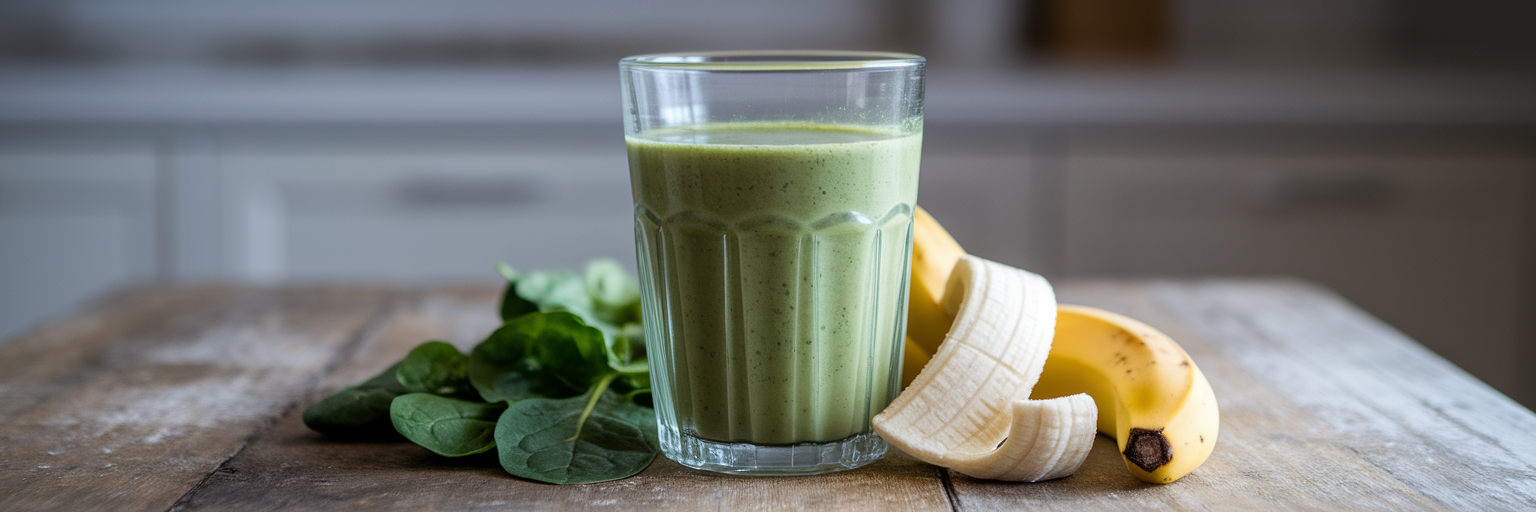There's nothing quite like the feeling of finishing a tough workout, knowing you've pushed your body. But when your post-workout recovery shake leaves you feeling bloated and uncomfortable, it can turn that victory into frustration. We’ve all been there, wondering if plant-based nutrition and digestive comfort can coexist. The good news is, they absolutely can.
You don't have to settle for discomfort. The solution isn't about giving up on the benefits of vegan protein. Instead, it’s about making smarter choices, starting with what’s inside your shaker bottle. This guide will walk you through simple, actionable steps to enjoy your protein shake without the bloat. It all comes down to choosing cleaner ingredients and understanding what causes that uncomfortable feeling in the first place.
Understanding the Common Causes of Protein Bloat
When you feel bloated after a shake, it's easy to blame the protein itself. But more often than not, the real culprits are the extra ingredients added to improve taste, texture, and shelf life. Let's take a quick look under the hood at some common additives that can cause digestive issues for many people.
- High-Fiber Additives: Ingredients like inulin and chicory root are often marketed as healthy prebiotic fibers. While they can be beneficial, they also ferment in the gut, which can produce excess gas and bloating, especially if you have a sensitive system.
- Artificial Sweeteners & Sugar Alcohols: Non-caloric sweeteners like sucralose, erythritol, and xylitol are popular in protein powders. However, our bodies don't fully absorb them. This can lead to them drawing water into the intestines, causing digestive distress for some.
- Fillers and Gums: Thickeners like xanthan gum or guar gum are used to create a smoother, creamier texture. Their job is to absorb water, but in your gut, this can create a heavy, "stuffed" feeling that mimics bloating.
Learning how to prevent protein shake bloat starts with becoming familiar with these ingredients. While they aren't inherently "bad," knowing how your body reacts to them is key. The protein source itself can also play a role, which brings us to how you can choose a powder that works with your body, not against it.
| Ingredient Type | Common Examples | How It Can Cause Bloating |
|---|---|---|
| High-Fiber Additives | Inulin, Chicory Root Fiber, Soluble Corn Fiber | Can ferment in the large intestine, producing gas. |
| Sugar Alcohols | Erythritol, Xylitol, Sorbitol, Maltitol | Not fully digested; can draw water into the intestines. |
| Gums & Thickeners | Xanthan Gum, Guar Gum, Carrageenan | Absorb liquid and can create a heavy, 'stuffed' feeling. |
Note: This table highlights common additives known to cause digestive issues for some individuals. Sensitivity varies, so checking ingredient labels is key to identifying personal triggers.
How to Select an Easily Digestible Vegan Protein
Finding a vegan protein powder no bloating experience requires a little bit of detective work, but it's simpler than you think. It's all about prioritizing clean, simple formulas that your body can easily process.
Prioritize Simple, High-Quality Protein Sources
Instead of complex blends with dozens of ingredients, look for powders made from single sources or simple combinations. Pea, brown rice, and pumpkin seed proteins are excellent choices. Why? They are naturally easy on the digestive system. As noted by Healthline, pea protein is known for its high digestibility and robust amino acid profile, making it a fantastic option for athletes and anyone with a sensitive stomach. These simple proteins provide the nutrients you need for recovery without the unnecessary extras, making them the best vegan protein for sensitive stomach.
Become an Ingredient List Detective
Flip that container over and read the label. Your new mantra should be: the shorter, the better. A high-quality powder doesn't need a long list of fillers, gums, or artificial sweeteners. Look for ingredients you can actually recognize. If the list is a paragraph long and filled with chemical-sounding names, it might be a sign to put it back on the shelf. Certifications like USDA Organic can also be a good indicator of a cleaner product, as they often adhere to stricter standards about what additives are allowed.
Look for Gut-Friendly Formulations
Some brands go the extra mile to create an easily digestible vegan protein. Look for powders that contain digestive enzymes like protease or bromelain. These enzymes help break down the protein, making it easier for your body to absorb and reducing the chance of discomfort. Another term to look for is "hydrolyzed" protein, which means the protein has been partially broken down, or "pre-digested," for even better absorption. For a clean and simple option, exploring a formula like our delicious chocolate vegan protein can be a great place to start your journey.
Smart Preparation for Better Digestion

Once you've chosen the right powder, how you prepare your shake can make a huge difference. A few simple habits can significantly improve digestion and help you get the most out of your post-workout fuel.
- Choose Your Liquid Wisely: Stick with water or a light, unsweetened plant-based milk like almond or oat milk. Heavier milks or sugary juices can add to the digestive load and contribute to that heavy feeling.
- Add a Digestive Boost: Give your gut a helping hand by adding natural, soothing ingredients. A small piece of fresh ginger or a dash of turmeric can help calm inflammation and support digestion.
- Time It Right: Drinking your post workout recovery shake within 30 to 60 minutes after exercise helps your body use those nutrients for muscle repair when it needs them most. This efficiency can also mean less time for the shake to sit in your stomach.
- Ensure a Smooth Mix: Please, don't dry scoop. Shaking or blending your powder with enough liquid is crucial. A well-blended shake is a better-digested shake because the powder is properly dissolved, making it much easier on your stomach.
And remember, shakes aren't the only way to get your protein in. For more creative ideas, check out some of our easy vegan protein recipes that you'll actually crave.
Bloat-Busting Vegan Recovery Shake Recipes
Ready to put these tips into practice? Here are two simple and delicious plant based protein powder recipes designed to be gentle on your stomach while delivering the recovery fuel you need.
Recipe 1: The Simple Green Recovery Smoothie
This smoothie is all about minimalism. The banana provides potassium for muscle function, while the spinach adds nutrients without affecting the taste.
- 1 scoop of your favorite simple vegan protein powder
- 1 cup unsweetened almond milk or water
- 1/2 frozen banana
- 1 large handful of fresh spinach
- 4-5 ice cubes
Preparation: Combine all ingredients in a blender and blend until completely smooth. Enjoy immediately.
Recipe 2: The Gut-Soothing Berry Blend
Berries are packed with antioxidants, and pre-soaking the chia seeds makes them gel-like and much easier to digest.
- 1 scoop of vanilla or unflavored vegan protein powder
- 1 cup water
- 1/2 cup mixed frozen berries (like raspberries and blueberries)
- 1 tablespoon of pre-soaked chia seeds (soak in 3 tbsp of water for 10 minutes)
- A small piece of fresh ginger (optional)
Preparation: Add all ingredients to your blender. Blend on high until creamy and smooth.
Pro Tip: For an extra digestive boost, add a spoonful of unsweetened, dairy-free yogurt to your smoothie. According to research in the journal Nutrients, probiotics can play a role in supporting a healthy gut microbiome. For more inspiration, you can always explore our blog.
Listening to Your Body and Making Adjustments

Ultimately, you are the expert on your own body. When trying a new protein powder, it’s wise to start low and go slow. Try half a scoop at first to see how your system responds before moving to a full serving. Pay attention to how you feel not just right after, but for the next few hours. Are you feeling energized and satisfied, or are you noticing subtle discomfort?
This mindfulness is your most powerful tool. If you've tried these tips and are still experiencing persistent digestive issues, it may be a good idea to consult with a registered dietitian or your healthcare provider to rule out any underlying sensitivities. For quick answers to common questions, you can also check our FAQ page.
Your Path to Comfortable Recovery
Finding a bloat-free recovery routine is entirely possible. It all comes down to three simple steps: choosing a simple powder, preparing it smartly, and listening to your body. With these strategies, you can finally enjoy the benefits of plant-based protein without any of the discomfort, allowing you to focus on what really matters: feeling strong, energized, and ready for your next challenge.
Ready to find your perfect match? Explore our collection of clean, gut-friendly vegan protein powders and start your journey to a bloat-free recovery.



